PAST FeatureS (2015)
Text: Esther Chok
Edit: Prof. Joseph Bosco
Anthropologists study the influence of religion on social organization and examine how religion, through the use of symbols and meanings, creates powerful emotion and maintains solidarity among believers. Religion can be regarded as a socio-cultural construct, which provides common values and gives meaning to people’s life. Anthropologists are not concerned with the truth of religion; rather, they investigate the role of religion in people’s life.
Luck is perceived as something that is outside human control, which may affect one’s life favorably or unfavorably. Luck has often been associated with religious faith. Objects that “receive the blessing of deities” are often believed to have the power to protect believers and bring them good luck. Therefore, many people are willing to make acts of devotion and pay for these kinds of sacred objects.
Blessings of deities are materialized as objects of luck. Lucky charms, amulets and key chains are some of the examples. In Taiwan and Hong Kong, Tianhou (also known as Mazu and Tin Hau) is widely worshipped by fisherfolk who believe that she can ensure their safety. Temples to Tianhou often sell or give out various objects of luck that can protect the believers and bring them fortune. Guanyin is also a popular deity worshipped in China and Southeast Asia. It is believed that Guanyin has mercy over people and will save them from pain. Luck also has a significant role to play in everyday life in contemporary Japan. Many Japanese people purchase engimono (lucky things that are associated with the blessings of deities) or pay visit to shrines and temples at the start of New Year to pray for good fortune.
Some sacred objects, such as “blessing rice” (literally “rice that brings safety”), have blurred the distinction between their use and symbolic value. This reflects the contradiction between the materiality of common objects used in everyday life and the spiritual value embedded in these things that can be constructed by consecration or circulation.
文: 竺穎琛
編輯: 林舟教授
人類學者研究宗教對社會組織的影響,並觀察宗教如何透過各種符號及意義以建構信仰者之間的強烈情感及凝聚力。宗教可被視作為一種給予社會共同價值以及生命意義的社會文化建構。人類學者所重視的並非宗教所提出的「真理」,而是宗教在群體生活中所起的作用。
「運」被視為一種人無法操控、並能正面或負面地影響人的生活的力量。運常常跟宗教信仰有所關聯。人們相信帶有神靈祝福的物品能保護他們,並為他們帶來好運。因此,人們願意以虔誠的舉止以及金錢換取這些神聖的物品。
神靈的祝福以不同形式的「幸運物」出現,例如幸運飾物、鑰匙墜及護符等。在台灣及香港,漁民普遍供奉天后(或媽祖)因為他們相信祂能保祐他們平安。供奉媽祖的廟宇常出售或派贈幸運物給信眾。除了媽祖之外,觀音亦是中國及東南亞地區普遍敬仰的神靈。信眾相信觀音慈悲為懷,能從苦難中解救他們。在日本社會,運亦深受重視。很多日本人在新年的時候都購買「緣起物」(受神靈祝福會帶來好運的物品)或參拜神社或廟宇,以祈求好運。
一些神聖物,例如「平安米」,其使用價值及象徵價值有著模糊的界限,反映了物品的物質性和其於獻祭及流通過程中獲得的神聖價值之間所存在的矛盾是社會建構的結果。
展品
| Amulets from Tianhou (Mazu) Temple | ||
 |
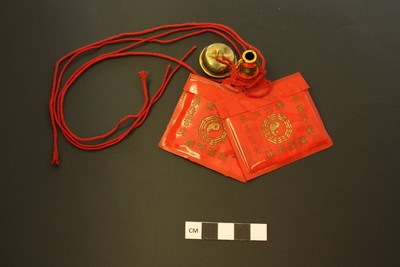 |
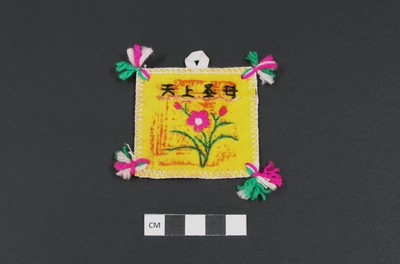 |
| Key chain and charm with Tianhou (Mazu) picture | ||
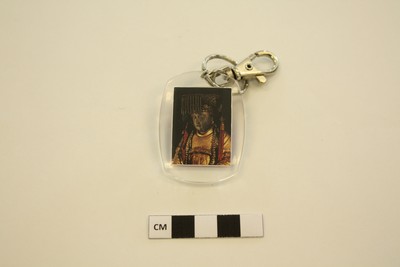 |
 |
|
| Amulet keychain with Guanyin picture | ||
 |
||
| Japanese amulets | ||
 |
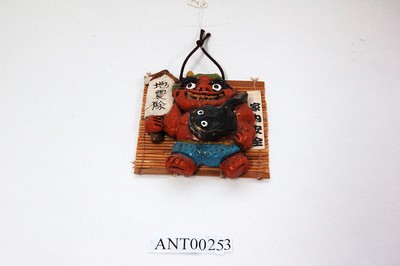 |
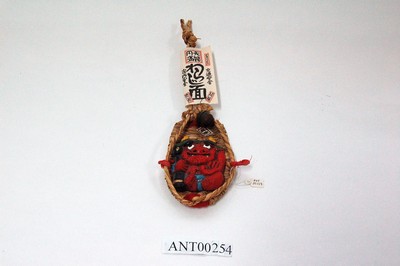 |
| Religious accessories | ||
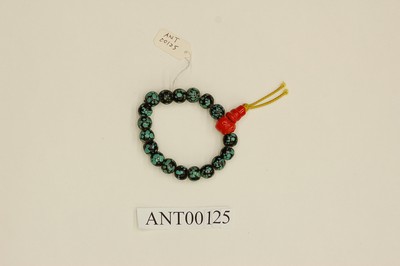 |
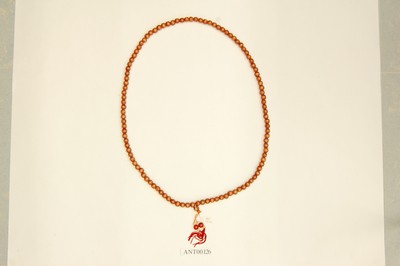 |
 |
| Blessing rice | ||
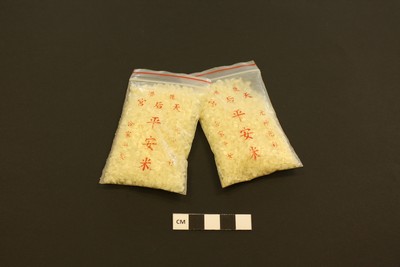 |
||
